Sourdough
$8.00
This ain’t your grandma’s Sourdough. As many have discovered, this sourdough is unique, flavorful and impossible to keep around because it gets gobbled up immediately. Seriously! We have customers that have to buy two loaves at a time; one for them and one for the hungry goblin that keeps eating up their sourdough (Looking at you Scott VanLandingham!)
This entirely homemade sourdough also has a special ingredient that truly helps set it apart and make it unique. Hint: If you know Dena, you know that secret ingredient ain’t love
Description
Sourdough bread is a type of bread that is made by the fermentation of dough using naturally occurring lactobacilli and yeast. Unlike conventional breads that use commercial yeast, sourdough relies on a “starter,” which is a mixture of flour and water that has captured wild yeast and bacteria from the environment. Here are some key points about sourdough bread:
- Starter: The core of sourdough bread is its starter, which contains wild yeast and lactic acid bacteria. This starter is cultivated over several days, with regular feedings of flour and water, allowing it to develop a robust population of microorganisms that contribute to the bread’s unique flavor and texture.
- Fermentation Process: During fermentation, the wild yeast in the starter helps the dough to rise by producing carbon dioxide, while the lactic acid bacteria produce lactic acid, which gives sourdough its characteristic tangy flavor. The fermentation process also breaks down some of the gluten and makes nutrients in the flour more available, which can make the bread easier to digest.
- Ingredients: Traditional sourdough bread typically contains just a few simple ingredients: flour, water, salt, and the sourdough starter. The simplicity of ingredients highlights the natural fermentation process and the quality of the flour used.
- Flavor and Texture: Sourdough bread is known for its complex, slightly tangy flavor and chewy texture. The crust is typically thicker and more flavorful than that of breads made with commercial yeast, and the crumb can range from dense and moist to airy with large holes, depending on the hydration of the dough and the handling techniques.
- Health Benefits: Sourdough bread has several potential health benefits. The fermentation process reduces the amount of phytic acid in the bread, which can improve mineral absorption. The longer fermentation time also helps to break down gluten, which might make sourdough easier to digest for some people with gluten sensitivities (though not suitable for those with celiac disease). Additionally, the presence of beneficial bacteria can promote gut health.
- Artisan Craft: Making sourdough bread is often seen as an artisanal craft. It requires time, patience, and skill to manage the fermentation process and achieve the desired texture and flavor. Many home bakers and professional bakers alike take pride in creating their own sourdough starters and perfecting their recipes.
Only logged in customers who have purchased this product may leave a review.

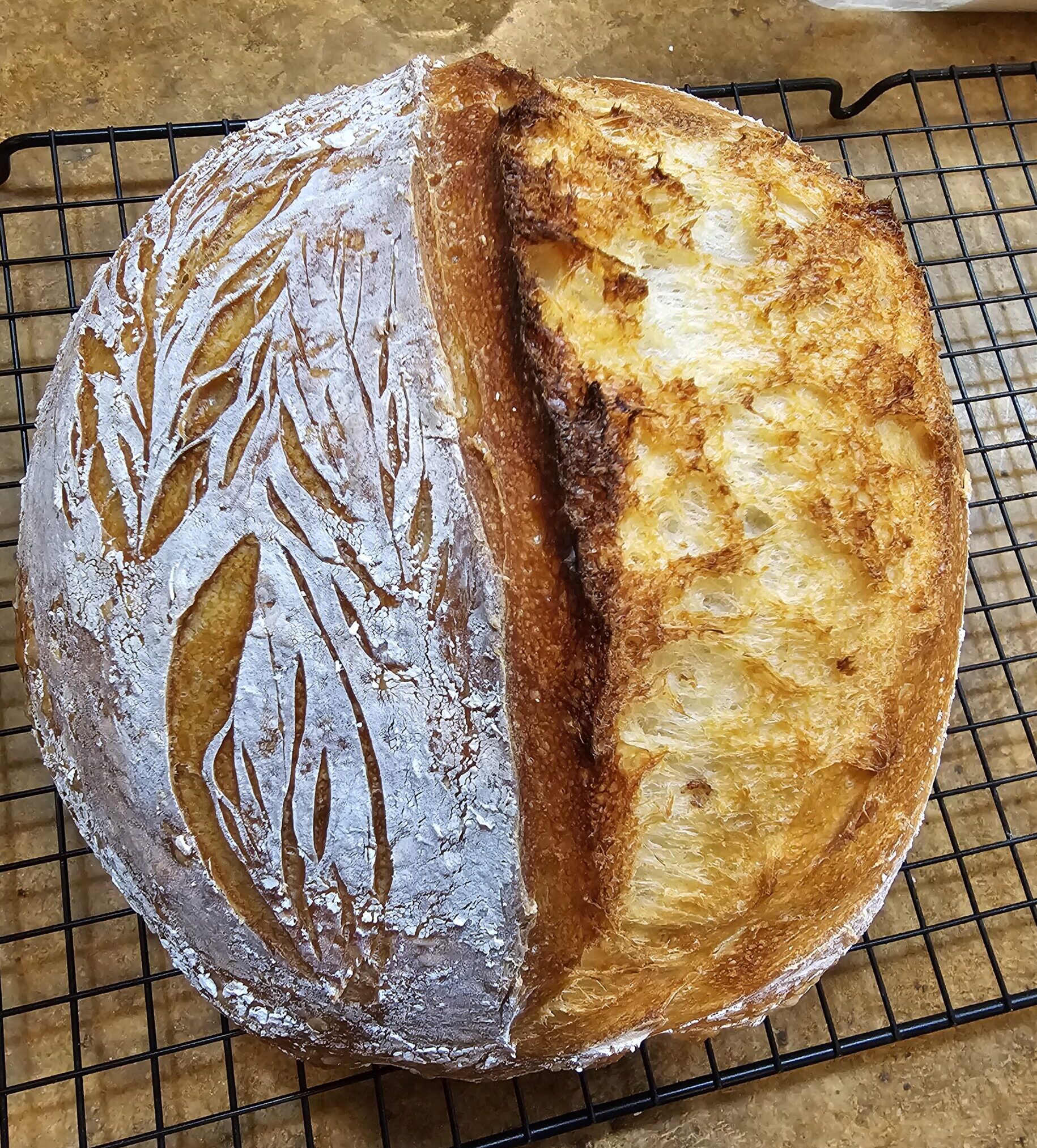
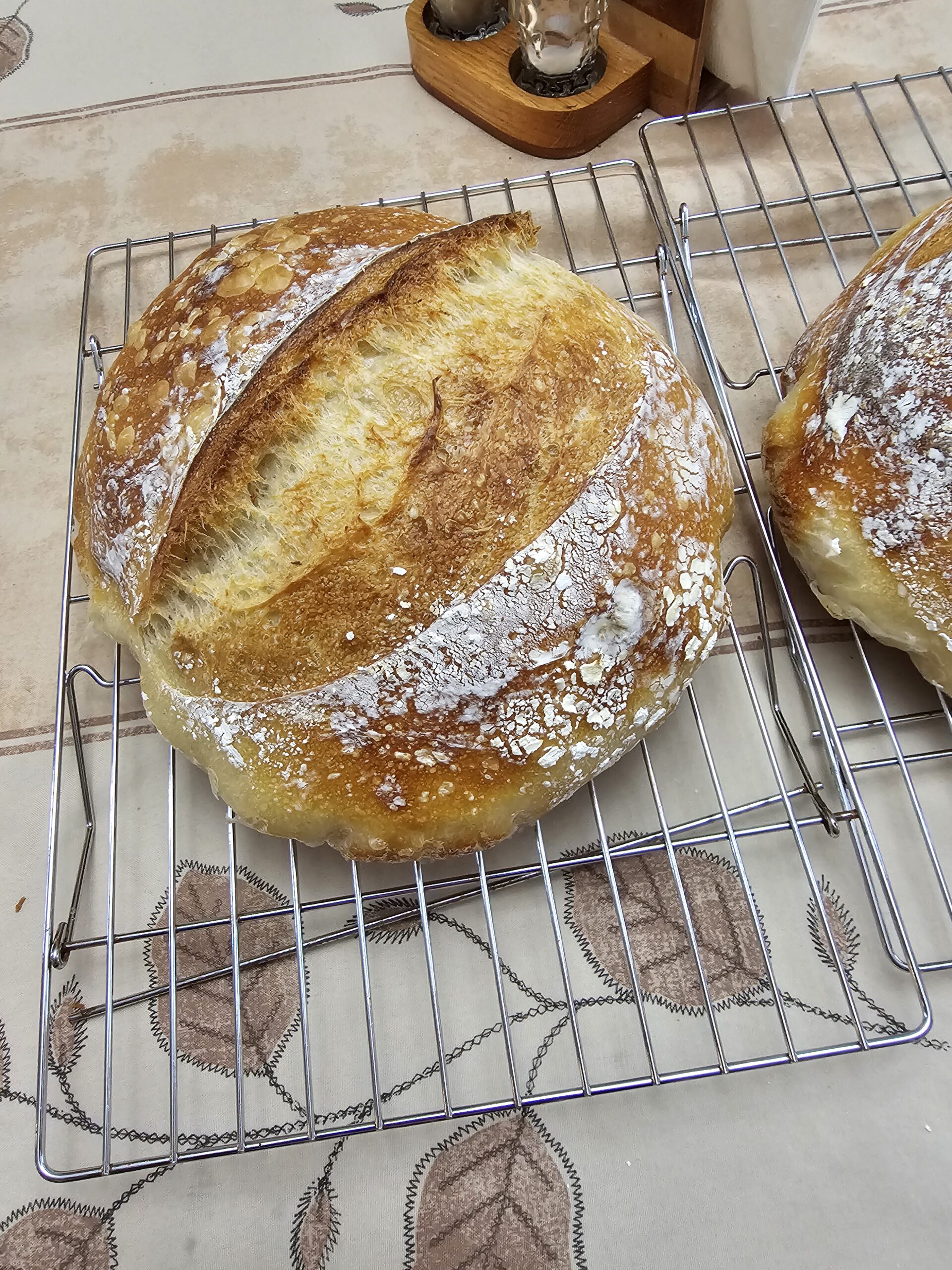
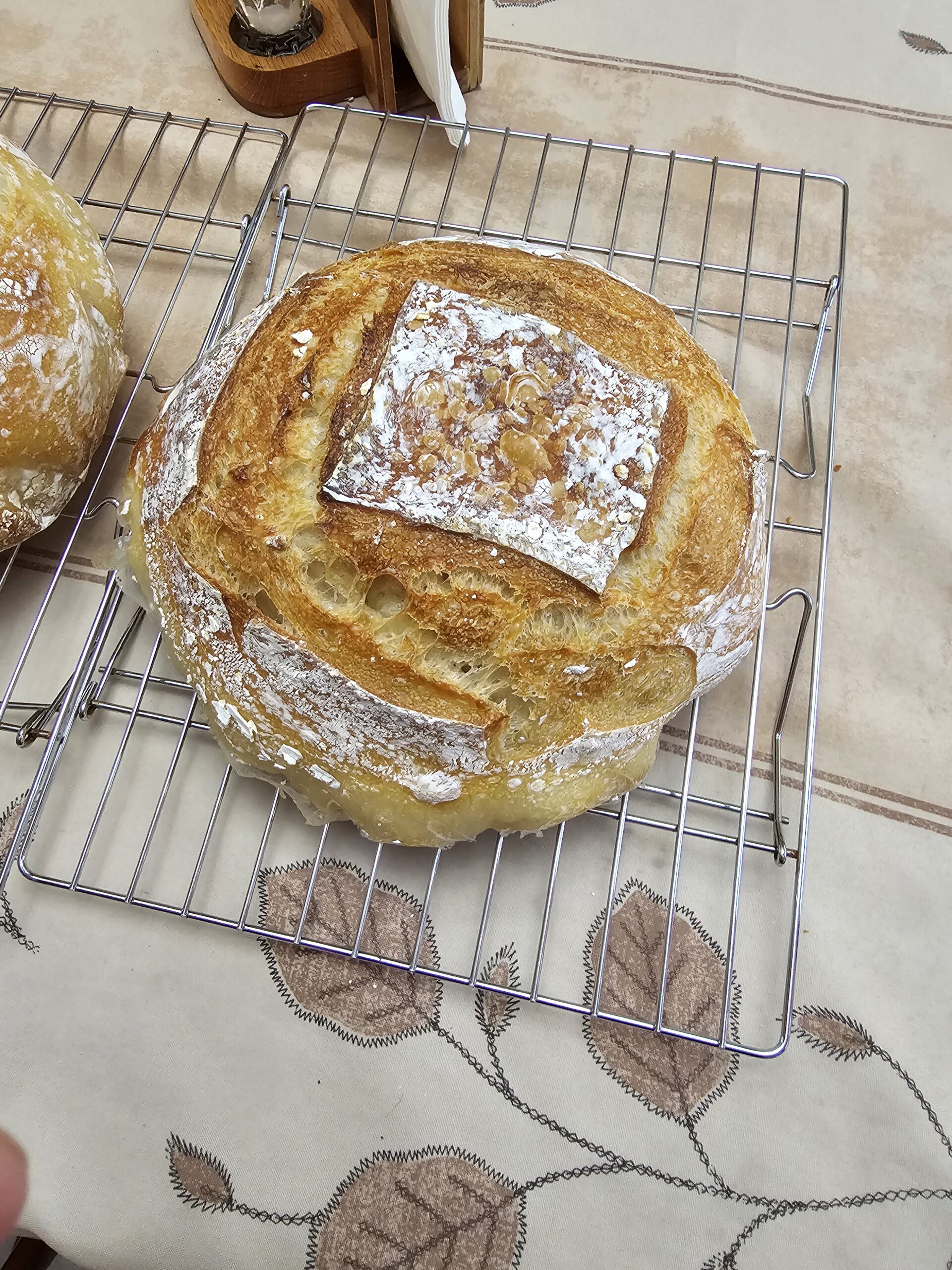
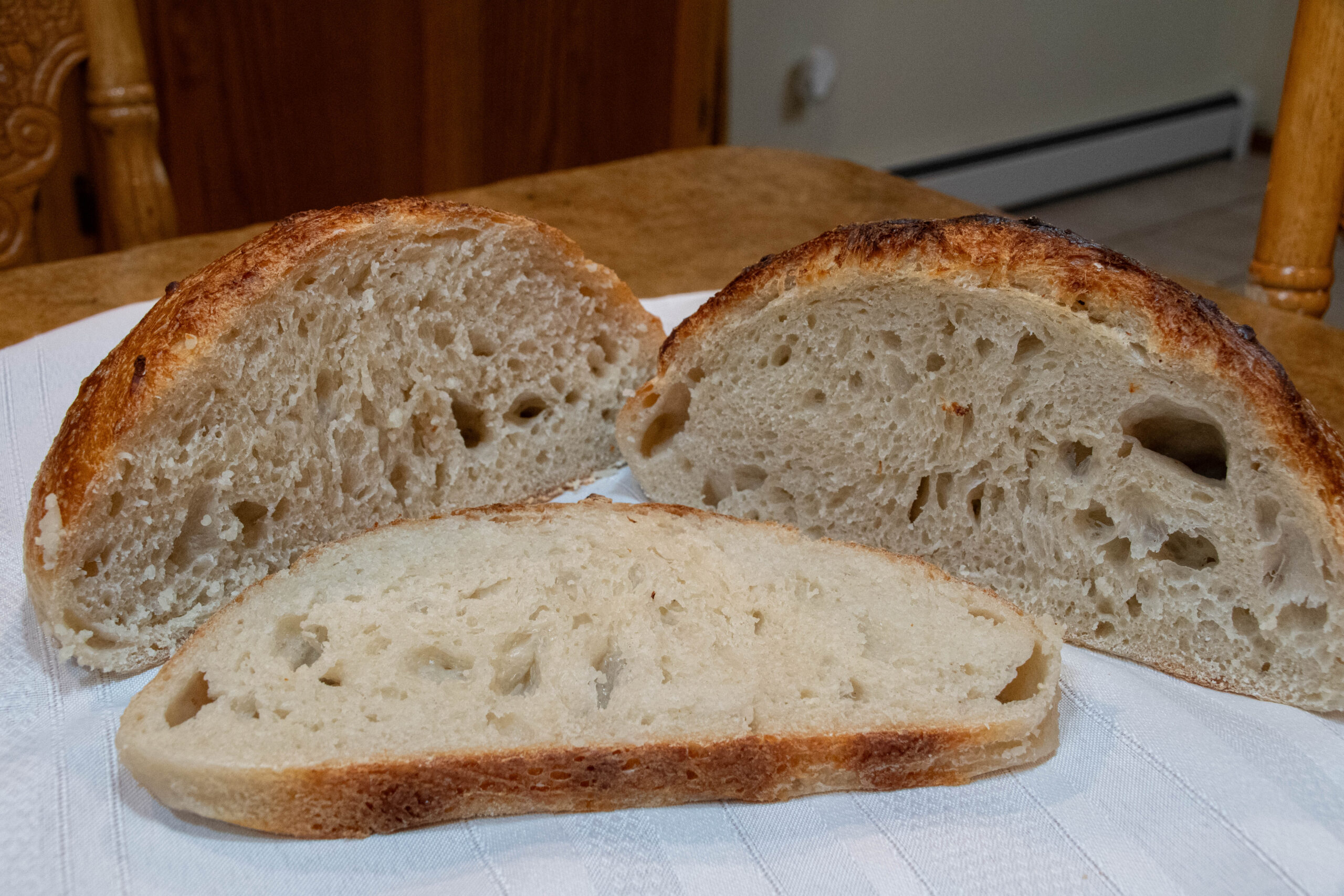
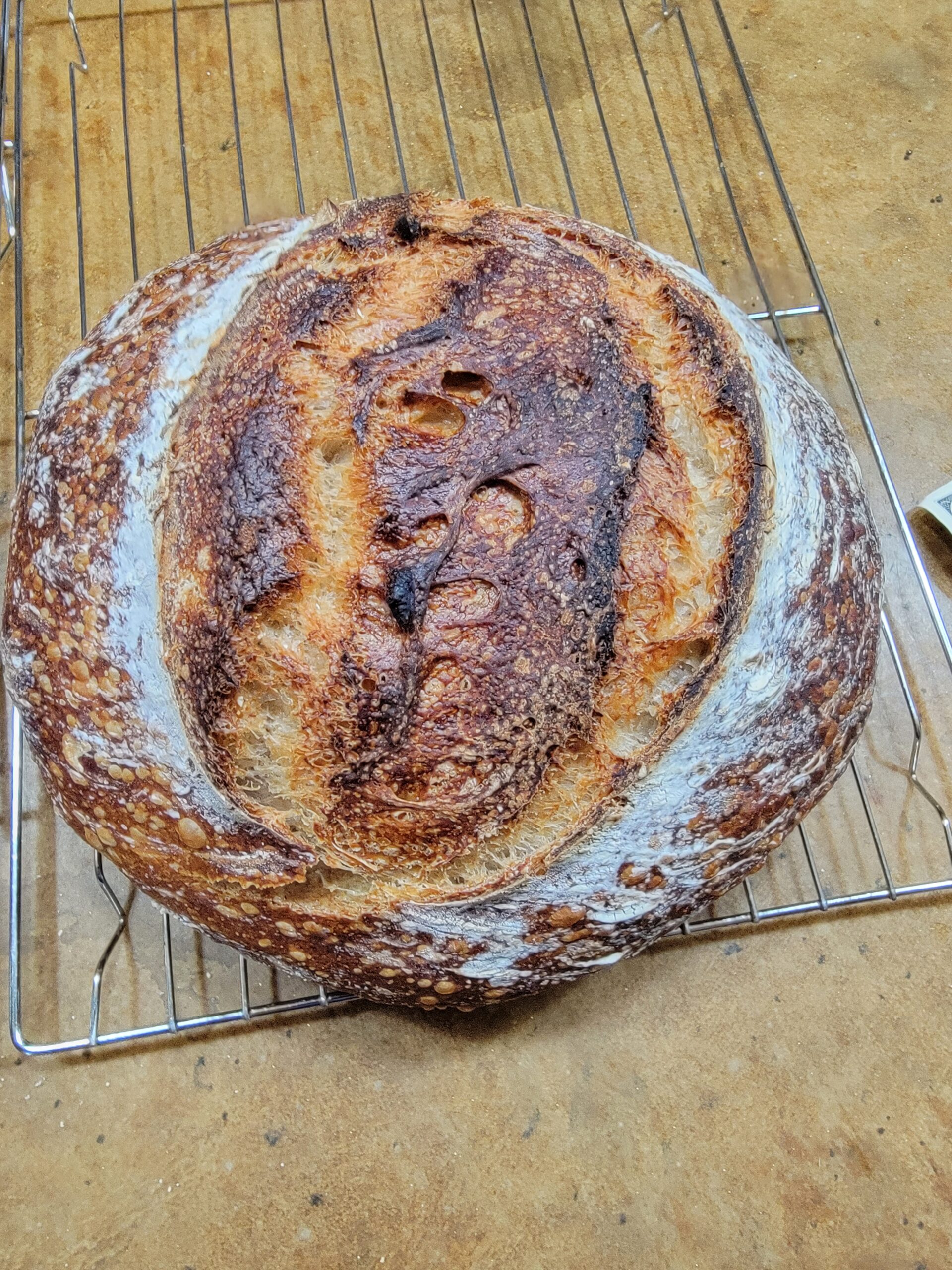
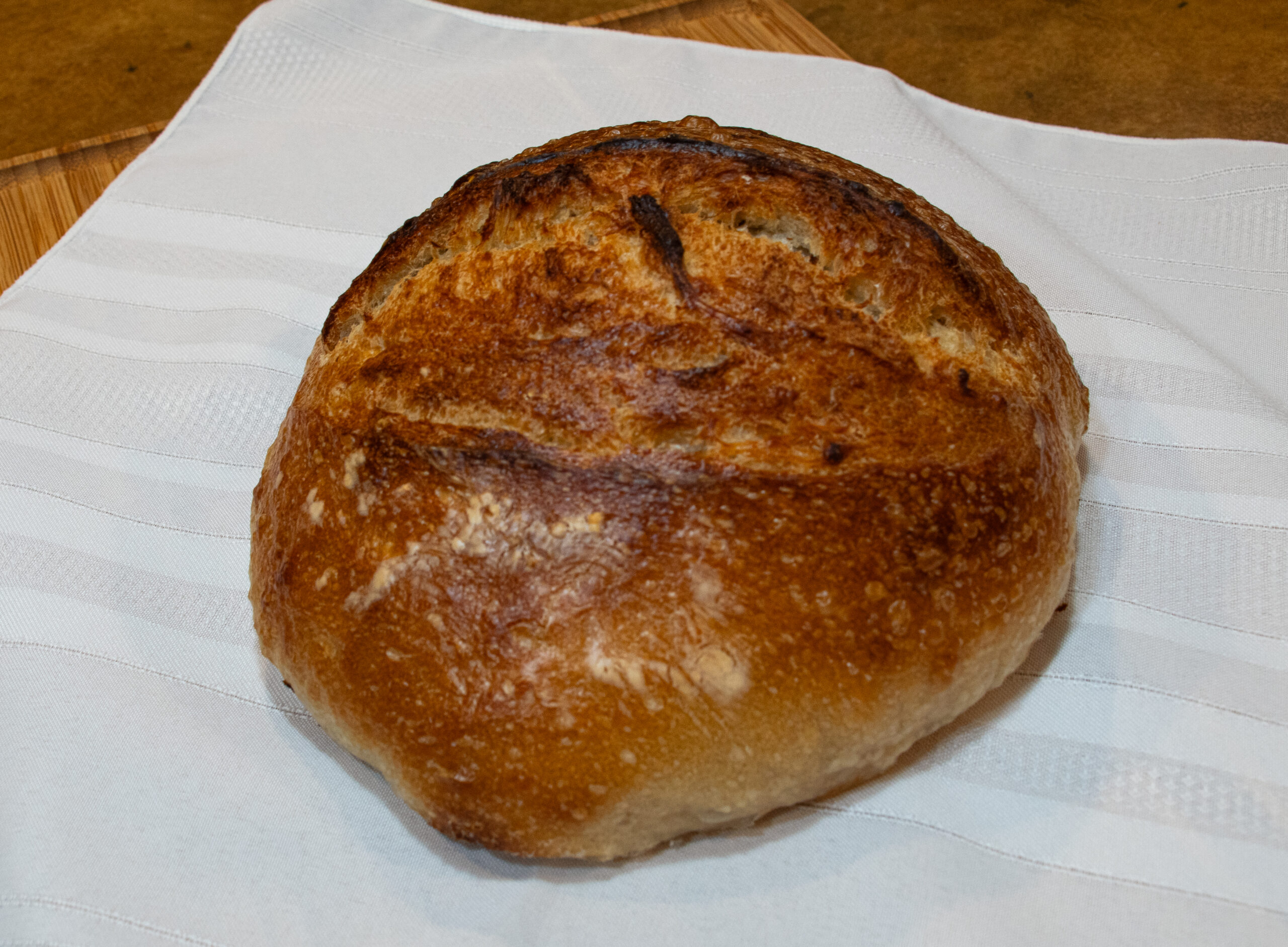
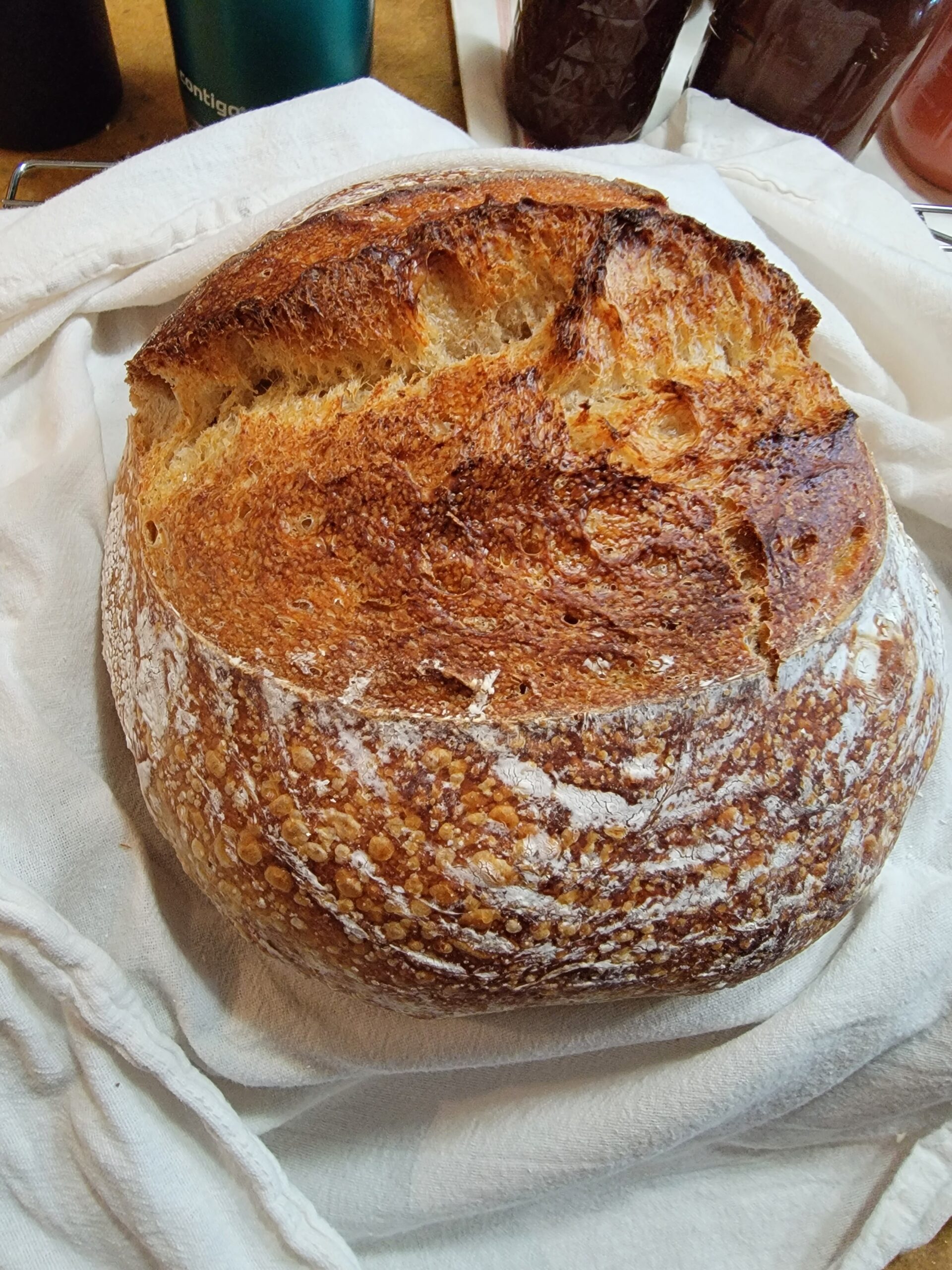
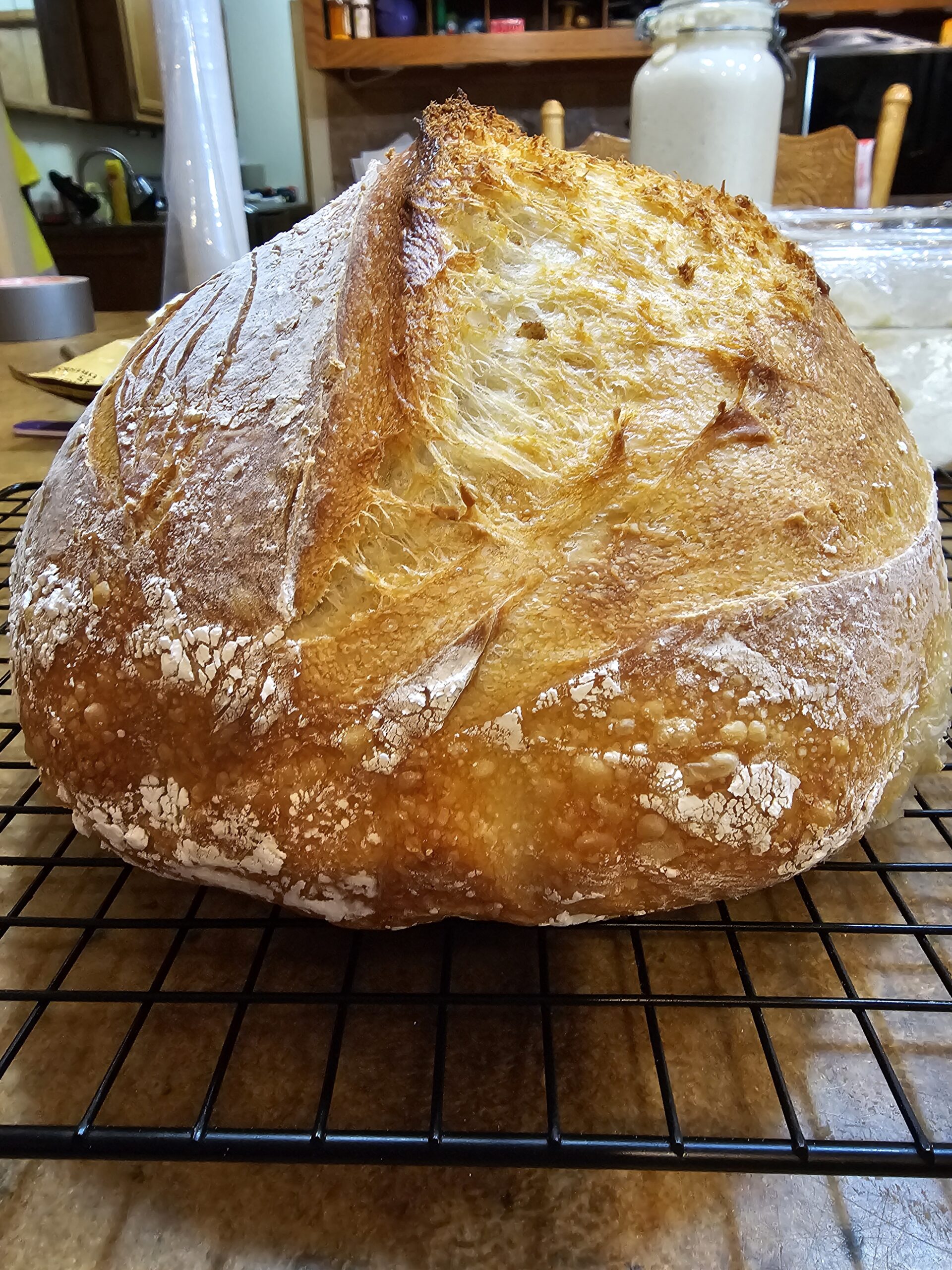
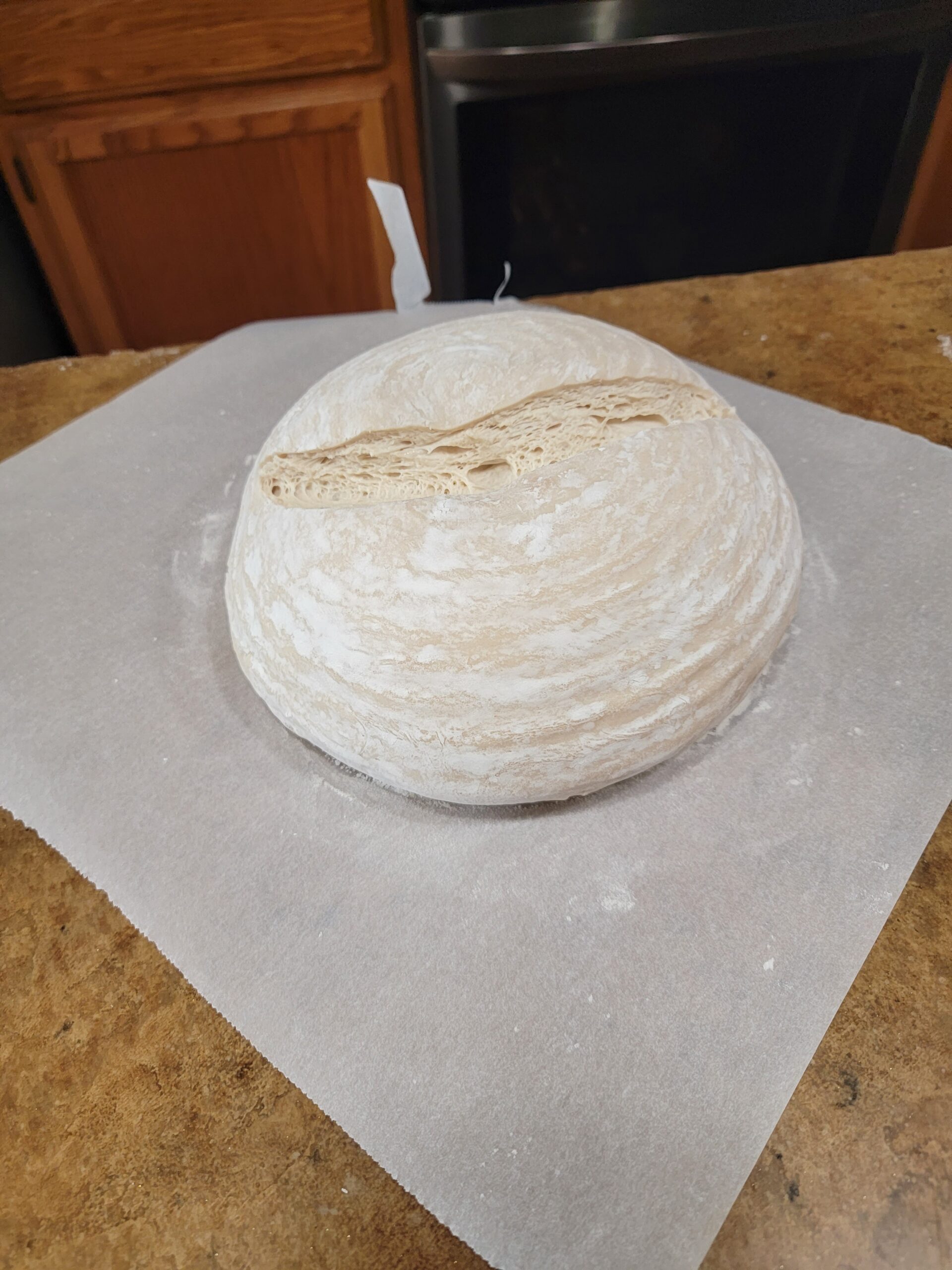
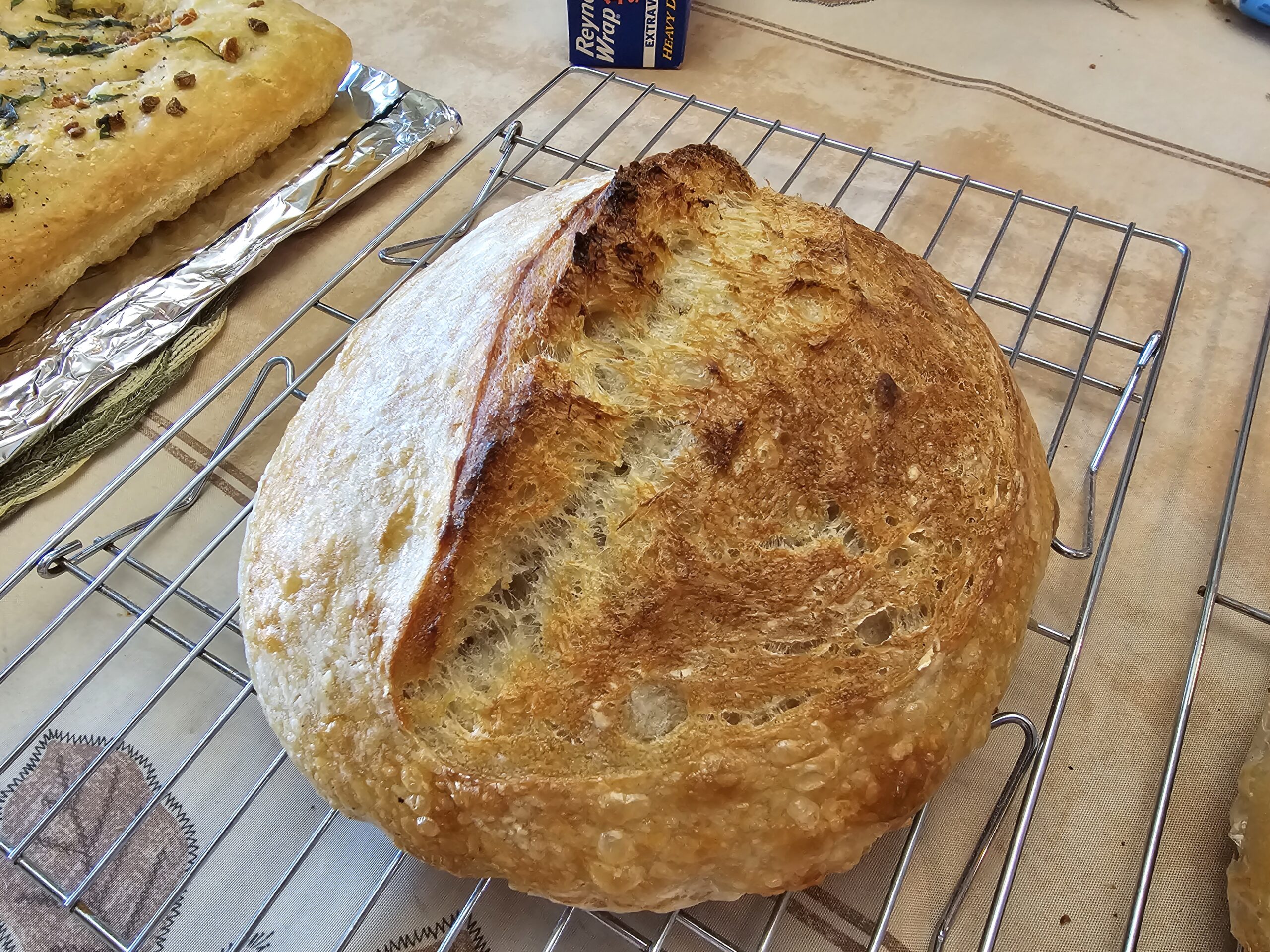
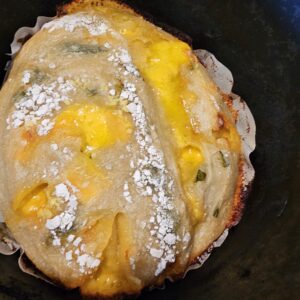
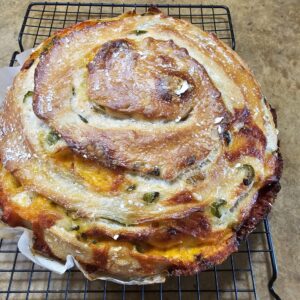


Reviews
There are no reviews yet.